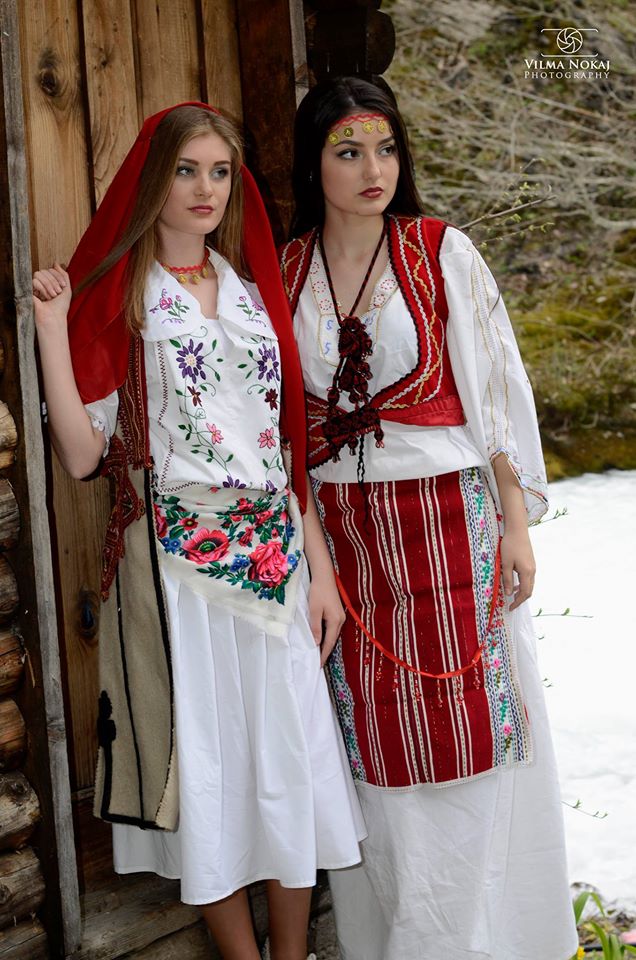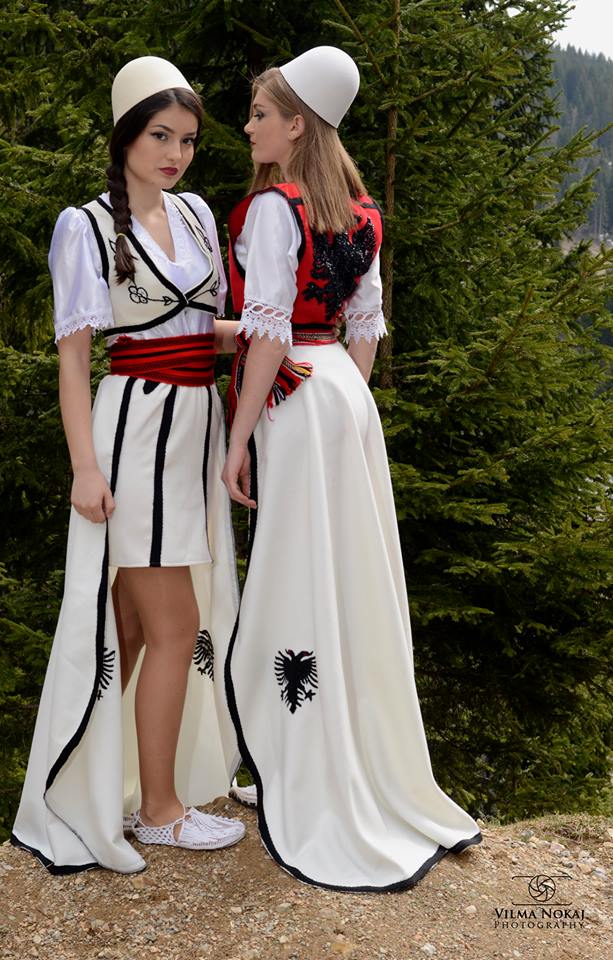Albanian Language - An Ancient European Voice
Have you ever wondered about the languages that have stood the test of time, the ones that carry stories from very, very long ago? Well, the Albanian language, sometimes called Shqip by its own speakers, is actually one of those truly old tongues you might hear in Europe. It holds a special spot, you know, as the official way people communicate in Albania, and it’s a language with a really deep past that stretches back many, many hundreds of years, perhaps even thousands, which is quite something. It's a language that, in a way, feels like it has seen a lot of history unfold.
This particular way of speaking, you see, isn't just used in one place. It actually serves as an official language in other spots too, like Kosovo and North Macedonia, which is pretty interesting. Beyond those places, people speak it in several different parts of the world, including bits of southern Albania, some areas in Turkey, Greece, and even Italy. It's a language that has traveled, you could say, with people moving around, and so it has found homes in many different places, very much connecting communities across borders.
For anyone curious about what makes this language special, there’s quite a bit to find out. There are, for instance, two main ways people speak Albanian, which are known as Tosk and Gheg, and these forms are, in some respects, quite distinct from one another. If you're thinking about trying to learn a few words, you might be surprised at how much information is available, covering everything from how to say things correctly to the basic rules of how sentences are put together. It’s a language that, you know, offers a lot to discover for someone just starting out.
Table of Contents
- The Roots of Albanian Language - A Look at Its History
- Where is the Albanian Language Spoken?
- What are the Main Forms of the Albanian Language?
- How Many People Speak the Albanian Language?
- Learning the Albanian Language - What You Need to Know
- Is Albanian Language Taught in Schools?
- The Official Status of the Albanian Language
- The Albanian Language - A Unique European Voice
The Roots of Albanian Language - A Look at Its History
The Albanian language, often called Shqip, carries a story that reaches back for a very, very long time. It is, in a way, considered one of the really old languages you can find in Europe. Think about it, its history, you know, goes back thousands of years. This means it has been spoken and developed over many, many generations, seeing countless changes in the world around it. It’s a language that, quite literally, has deep, deep roots in the soil of the past.
To have a language that has lasted so long, that has been passed down from person to person for such an extended period, is actually quite something special. It tells us a bit about the people who speak it, how they have kept their way of talking alive through so much time. This long history, so, gives the Albanian language a particular kind of weight, a feeling of age and continuity that few other languages can claim. It's almost like listening to an echo from long ago, still clear and strong today.
Where is the Albanian Language Spoken?
The Albanian language has a home base, which is Albania itself, where it serves as the country’s main and official tongue. But it doesn't stop there, you see. It also holds a very important place as one of the official languages in Kosovo, and you'll find it recognized as an official language in North Macedonia too. So, it's not just a language for one nation; it has a presence that spans across several different places, which is pretty interesting.
Beyond its official roles, the Albanian language is also spoken in other parts of the world. For instance, you can hear it in southern Albania, and there are communities that use it in Turkey, Greece, and Italy. It’s also recognized as a language spoken by a smaller group of people in Montenegro and in certain areas of southern Serbia. This shows that, in a way, the language has spread out, finding its way into various communities and countries, connecting people far and wide. It's really quite a distributed language, if you think about it.
What are the Main Forms of the Albanian Language?
When you talk about the Albanian language, it’s worth knowing that there are, in fact, two main ways people speak it. These are known as Tosk and Gheg. These two forms are, you know, distinct from each other, each with its own particular sounds and ways of putting words together. Tosk, for instance, is the form that is the official language of Albania, and it’s the one you’ll hear in southern Albania, as well as in those other countries like Turkey, Greece, and Italy.
The other form, Gheg, is spoken in different areas, typically in the northern parts of Albania and in some other regions where Albanian is used. While they are both parts of the same Albanian language family, they do have, in a way, their own unique characteristics. So, if you were to listen to someone speaking Tosk and then someone speaking Gheg, you would, you know, probably notice some differences in how they sound and how certain things are said. It’s almost like having two different flavors of the same language, each with its own special taste.
How Many People Speak the Albanian Language?
It’s quite something to think about how many people actually speak the Albanian language around the world. The numbers suggest that, in total, about 7.5 million individuals use this language to communicate. That’s a pretty big number, when you consider it, showing just how many lives are touched by this particular way of speaking. It means a lot of conversations, a lot of stories, and a lot of everyday life happens in Albanian.
If we look at specific places, a very large portion of these speakers live in Albania itself, with around 3,500,000 people there using the language. Then, in Kosovo, you have about 500,000 people who speak Albanian. This shows that, you know, while it’s spread out, it has very strong populations in its main home countries. The numbers, in some respects, really paint a picture of a language that is alive and well, used by millions every single day.
Learning the Albanian Language - What You Need to Know
For anyone thinking about picking up a new language, especially one with such a rich history like the Albanian language, there are actually quite a few ways to get started. You might find guides that are, you know, made especially for people who are just beginning their learning adventure. These guides often aim to give you a good foundation, helping you get comfortable with the basics. It's almost like getting a roadmap for a new place you want to explore.
When you start learning the Albanian language, you’ll probably want to pay attention to a few key things. For example, getting the sounds right, what we call pronunciation, is pretty important. So, learning tips on how to say words correctly can really help. Then there are the grammar basics, which are, in a way, the rules for how sentences are built. Understanding these helps you put words together so they make sense. You might even find it helpful to learn how to count, perhaps starting with numbers from one to ten in Albanian, which is a common first step for many learners.
Is Albanian Language Taught in Schools?
Yes, the Albanian language is, in fact, taught in schools. This is a very common practice in places where it is an official language, like Albania, Kosovo, and North Macedonia. When a language is taught in schools, it means that younger generations get to learn it in a structured way, which helps keep the language strong and ensures it continues to be used by everyone. It’s, you know, a way of passing on this very old tradition of speaking from one group of people to the next.
Having the Albanian language as part of the school system is, in some respects, a sign of its importance within those societies. It means that children grow up learning how to read, write, and speak it properly, giving them a solid connection to their heritage and culture. So, if you were to visit schools in these areas, you would typically find lessons dedicated to the Albanian language, making sure everyone gets a good grasp of it.
The Official Status of the Albanian Language
The Albanian language holds a very important position in several places, serving as the official language for entire nations. In Albania, for instance, it is the main and official way people communicate in government, in schools, and in daily life for nearly everyone. Over 97% of the people living in Albania speak it, which shows just how central it is to their daily existence. It’s almost impossible to imagine life there without it.
Beyond Albania, the language also has official standing in Kosovo, where it shares the role with another language, making it a co-official tongue. And in North Macedonia, it is also recognized as one of the official languages. This means that, in these places, the Albanian language is used for public services, in legal documents, and in many other important aspects of public life. It’s a sign of its very significant presence and role in these countries, you know, giving it a strong foundation.
The Albanian Language - A Unique European Voice
When you consider the Albanian language, you’re really looking at something quite special in Europe. Its very long history, stretching back thousands of years, makes it stand out among many other languages on the continent. It’s a language that, in a way, has developed on its own path, creating a unique sound and structure that sets it apart. This distinct character is part of what makes it so interesting to learn about, and perhaps even to try speaking.
The fact that it’s spoken by millions of people across different countries, from its home in Albania to parts of Italy and Turkey, shows its reach and the enduring spirit of its speakers. Whether you hear the Tosk form or the Gheg form, you’re listening to a language that has, you know, truly stood the test of time. It’s a living piece of history, still very much in use today, and that, is that, pretty remarkable.

Traditional Albanian Costumes - Traditional Clothing of Albanians Photo

Albanians in traditional clothing from southern Albania | Albanian

Traditional Albanian Costumes - Traditional Clothing of Albanians Photo